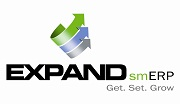“Failure isn’t fatal, but failure to change might be” – John Wooden
Planning for an ERP implementation in the near future? Are you worried about rising costs? Are you unsure about what is the best-fit ERP software for your company?
If these are the thoughts pondering on your mind right now, this article will bring you the solutions for every query that you have.
An ERP software implementation surely comes with a lot of challenges, even though its benefits are manifold. In the next few years, your business value will reach new heights and touch new shores of expansion, with a successful and best fit ERP software integration. With prior knowledge of the challenges and bottlenecks, you can be better prepared to counter any such obstacles with ease.
Inaccurate Requirement Analysis:
ERP implementations in most cases fail because of inaccurate requirement analysis. One needs to know the difference when an ERP application is integrated with an e-commerce site and a POS software. However, in most companies requirement analysis is done by employees with limited knowledge of ERP implementation. Primary emphasis is laid upon the cost and faster execution. But unfortunately, the project fails in most cases as the requirement is not completely understood in the chaos of bargaining with the costs with the vendor. To have more clarity on ERP implementation, case to case differences, actual time and money to be invested, involving people with good knowledge on ERP is a must. Team Expand understands your business well with over 16 years of extensive market research and development in the industry. Our team understands and analyses the specific challenges and needs faced by your business and then curates the software accordingly.
Inadequate Training:
Following closely on the lines of the previous challenge discussed, lack of knowledge continues to be a hurdle for a successful ERP implementation. When your company is preparing for a major data transfer from the legacy system to a new ERP reality, it is necessary to have a basic understanding of the changes that are taking place, the new interface, and risks or losses involved in the process. You may arrange for a brief knowledge transfer session for all employees or anybody who would be part of the new system, before the actual change takes place. Not an elaborate training program followed by a test, but a simple 45-minute session by the knowledgeable resources, for all to attend. Training videos of the same may also be circulated. Expand smERP offers complete training of users post implementation within 50 hours by trained technicians and constant support even after implementation.
Expand smERP encourages constant help and support of employees of any business. Post implementation, Expand Sure smile provides 24×7 customer support and user training for proper knowledge of the usage of the software.
Inefficient Project Management:
You should have the right resources in your team for customer success. We need to understand their worth and utilize their full knowledge and potential for efficient project management. Trust them, mentor them, train them and let them come up with a full-proof project management plan that will not only ensure a successful ERP implementation but also derive desired ROI for your business. Only with meticulous project management, one can achieve that, no amount of cost-cutting or package deals help.
Customization:
ERP software is often misunderstood as a wholesale package solution for a company. But unfortunately, it is not. ERP applications are actually a framework with which a customized solution is built. This means, your requirements have to be defined well in advance and accordingly a customized ERP solution will be created. For that, you need to define the workflows and do a capability analysis, beforehand. You might have to make a few minor adjustments in the application solution to meet all your enterprise needs. These adjustments or modifications differ from suite to suite and might be required at the beginning or sometime in the middle of implementation. If you are prepared for capacity planning, delays in implementation and time loss because of system outage may be kept at bay. It is advisable to invest in a best-fit ERP software that suits all the unique needs of your business. A ‘one size fits all’ ERP system is most likely to fail.
Expand smERP is a best fit ERP solution for mid-sized manufacturers in export and retail industries. It is industry-specific and fits in according to your specific business needs. ERP is known to grow along with your business.
Rising Operational Expenses:
Overhead cost is one of the biggest challenges of ERP implementation. The initial cost of implementation is high, but the customization and maintenance costs are even higher. The more customization needs are, the higher are operating costs. Maintenance costs are of course a necessary evil, which cannot be brushed aside. However, with an efficient requirement analysis and resource planning, much of this cost may be brought under control. Sit with the best-qualified professionals in the organization to find out what you really need for enhancing your business value. Seek for features that will add value to your product or service, attract more business, and position you better as an entrepreneur. That way, you will get the true value for your best fit ERP solution without spending a huge amount. Expand smERP cloud software involves zero upfront costs. Only a concurrent user price is payable as per your usage. Investing in Expand smERP cloud software is a value for money solution that derives fast ROI.
These are certain generic challenges while implementing ERP software. Depending on the sector in which the company operates in, the extent of complications may vary. This will ensure the implementation process is smooth without any glitches. Team Expand assures you a hassle-free cloud ERP software integration experience with the utmost ease. Grow your business with Expand smart ERP cloud softwares.






